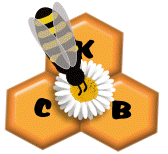How much does it cost to start up beekeeping? The figure generally given is £1000. Consider that you will need a suit, a smoker, a hive tool, 2 hives minimum and a nuc of bees, just to get started. Beekeeping is one of those hobbies where money is easily spent and more equipment sought, as colony numbers can quickly increase through splitting colonies/swarm prevention during the summer months. It is a very absorbing hobby and suddenly, much time and money is being spent! Membership of the club offers the opportunity to borrow other expensive equipment required for honey extraction and processing.
Do I need any qualifications to become a beekeeper? The simple answer is no. No formal qualification is required. We do recommend a beginners’ course before embarking. The ADBKA offer an excellent course as a short series of lectures. As a small club we do not offer a formal course on a regular basis. Self-study & finding opportunities for hands-on experience through your club are excellent learning tools. You would not buy a horse if you did not know how to ride – and it would be unwise to get your own bees until you have a degree of confidence and knowledge about how to handle and manage them. Through the club, our regular apiary sessions offer an excellent opportunity for beginners to develop their handling skills and learning on-the-go.
How do I know if I have a suitable location for bees? This requires careful consideration… The ideal apiary location would have the following features:
- Away from public view but easily accessible to the beekeeper by car/wheelbarrow
- lots of suitable forage in the surrounding area – consider the trees, spring bulbs/flowers, surrounding crops. Bees require considerable amounts of pollen throughout the year (kilos) for the successful raising of brood, and if there is not sufficient nectar producing plants around then they will not be able to thrive and store any surplus as honey for you to enjoy!
- source of water nearby – stream, ditch, pond, gutters, dripping tap, artificial.
- enough space around hives to manoeuvre behind them and handle equipment. On the flat is also much easier, especially when carrying heavy boxes of honey!
- shelter from prevailing wind
- protection from livestock
- not in a frost pocket or damp hollow, nor under thick trees
- away from public roads and footpaths
- facing South ideally, or with plenty sunshine, not a dark corner
- mindfulness of the direction that the bees will fly out, wishing to avoid cars, washing lines and neighbours’ property
- a suitable distance away from the house and neighbours – farther the better!
How do I get bees? Colonies tend to multiply through the summer & swarms are also prolific in the summer months. There are colonies available from other members at appropriate times of year. A little patience may be required as members will wish to produce a small, healthy colony, suitable for your skill level. Buying an over-wintered nucleus or ‘nuc’ (a small colony in a half-size hive) is a good way to start as your confidence will grow with your colony size. Starting with a full-size colony could be a little daunting to the beginner and these are more likely to swarm in your first season. Buying bees from an online source is not recommended. The provenance of these bees is potentially unknown & you may bring disease into the area, as well as bees that are not suited to the Aberdeenshire climate. Bees that are raised and survive here are obviously better adapted. Buying local bees through a local association is the best advice!
Where is the best place to get a suit? Bee Cabin (local retailer under new management – Aboyne). Reliable online outlets would include: Thornes, BBWear & Sherriff. Many very cheap suits are available but it would seem that ‘Buy cheap – pay dear’ holds true when it comes to suits.
What about Second-Hand equipment? We urge great caution over the use of Second-Hand equipment. This is known to be one of the greatest sources of serious disease (brood diseases EFB & AFB) Old comb and frames must be completely avoided & any old hives/parts must be scrupulously cleaned with appropriate methods as the disease pathogens can survive many years and even the smallest amount is enough to allow the disease to re-emerge and re-establish in bees.
What type of hives do most people use? The National is the most commonly used hive type in this area/UK in general. A smaller number of people use Langstroths or Smiths.
What about Polystyrene Hives? A number of our members use Poly hives exclusively. Others prefer the more traditional cedar/wood. It is a matter of preference with Pros & Cons for each. Poly hives are cheaper, more light-weight and offer better insulation. Wooden hives are longer-lasting, easier to clean and a natural material. The choice is yours & the bees like both!
What about Flow hives? These are generally considered unsuitable for beekeeping in this part of the world and may operate more successfully in a warmer climate. I know of no Aberdeenshire beekeeper that uses one and that in itself speaks volumes as to their general suitability…
